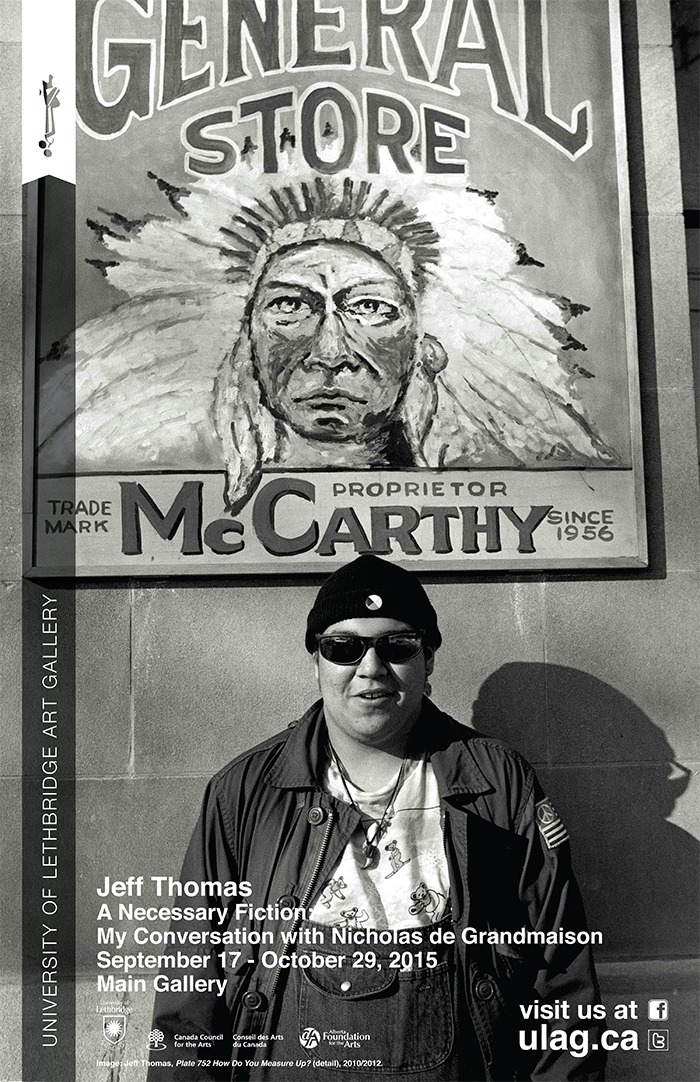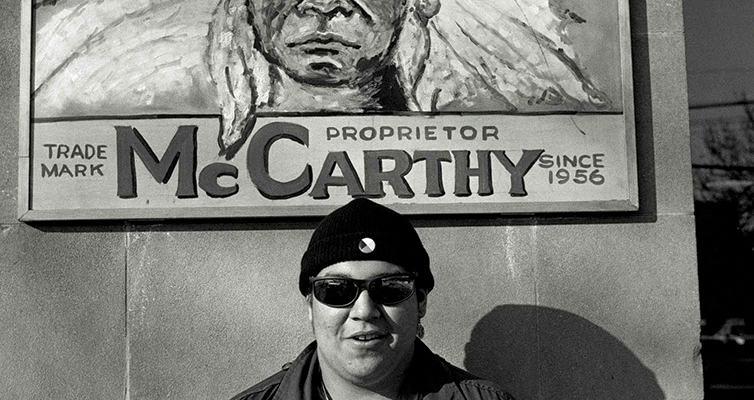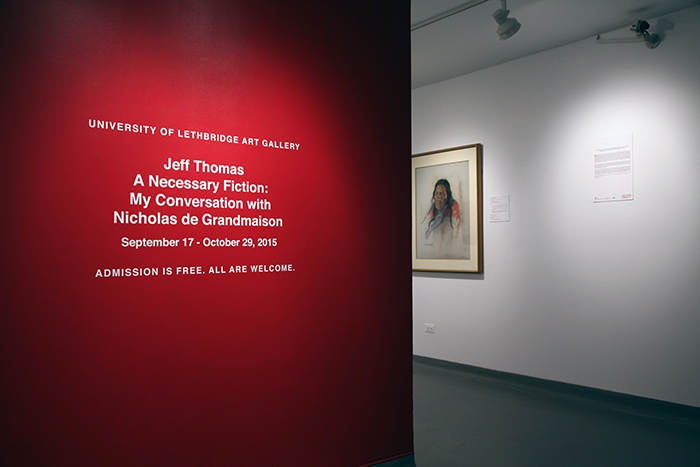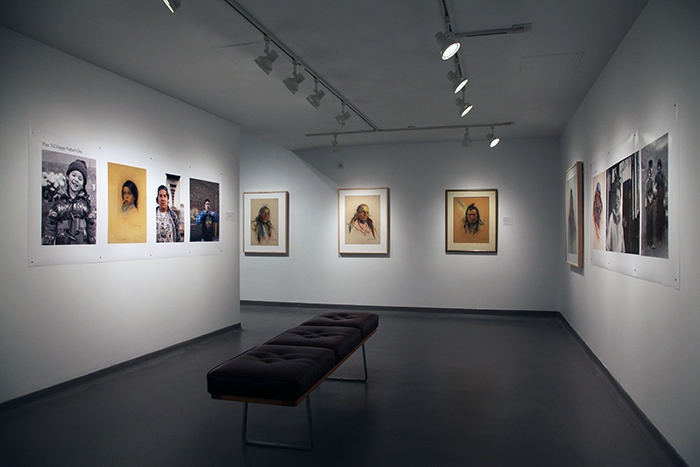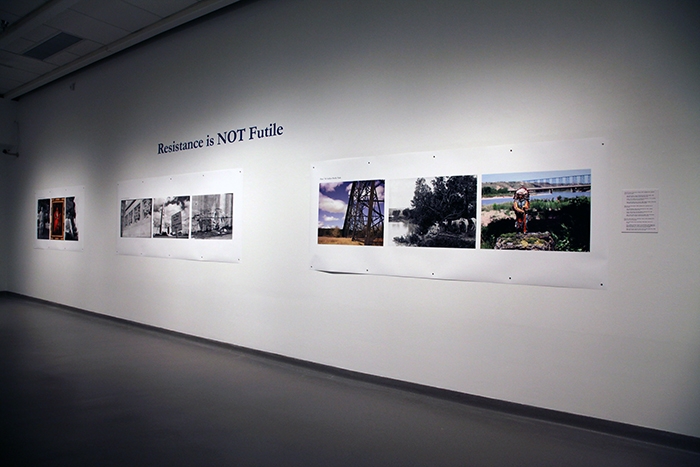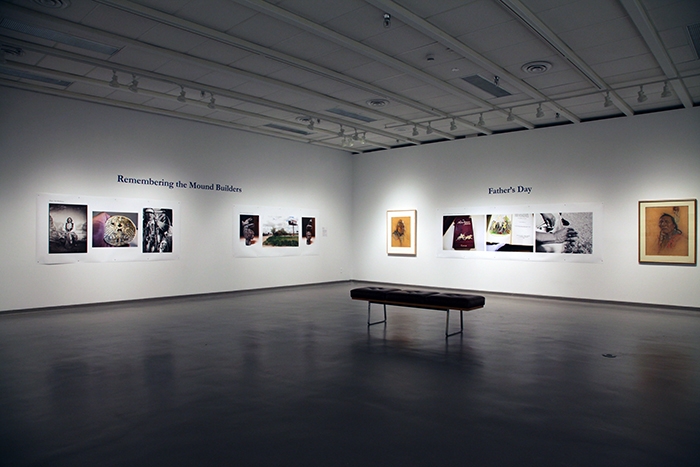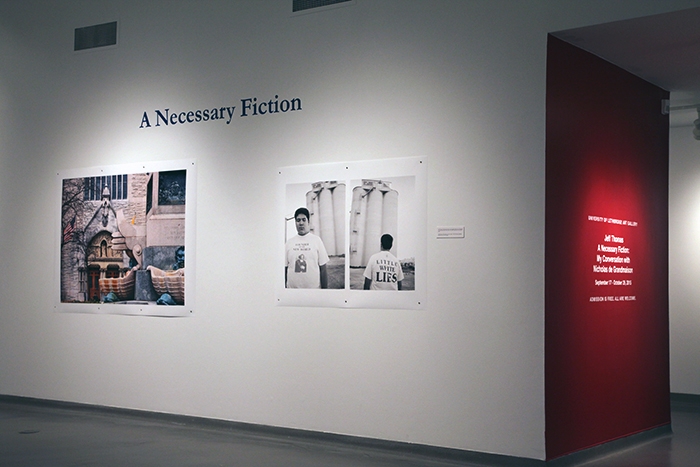Reception: Thursday, September 17, 4 – 6 pm
Artist will be in attendance.
Artist: Jeff Thomas
Curated by Josephine Mills
Curatorial Statement:
It is an honour to present this exhibition to audiences in Southern Alberta. Jeff Thomas is internationally renowned for his decades long career that involves telling the stories that are left out of official history by combining his photographs of contemporary Aboriginal people with historical images and monuments by Europeans. Thomas conducts extensive research in archives and at historical sites as the basis for his art work. His strong, intelligent, and political work has had a profound effect on the public imaginary and the conversation about historical and contemporary Aboriginal representation. Thomas has influenced many artists, but also helped to challenge, and ultimately shift, the whole field of museum and art gallery practices in relation to Aboriginal people and subjects.
Thomas has certainly informed my work as a curator and it has long been a goal to work with him. It has been a pleasure to finally have that opportunity for this exhibition and to have Thomas produce new work in conversation with the University of Lethbridge’s holding of pastel portraits by Nicholas de Grandmaison. For A Necessary Fiction, Thomas has produced new work that draws on his existing body of imagery and connects that with new images produced on recent research trips as well as with the BMO Financial Group’s donation of portraits by de Grandmaison. I look forward to the many excellent and necessary conversations that Thomas’ exhibition is sure to generate.
Josephine Mills,
Director/Curator
Artist Bio:
Jeff Thomas is an urban-based Iroquois photographer, writer and curator, living in Ottawa, Ontario, and has works in major collections in Canada, the United States and Europe. Jeff’s most recent solo shows were Mapping Iroquoia: Cold City Frieze, McMaster Museum of Art, Hamilton, Ontario, Resistance Is NOT Futile, Stephen Bulger Gallery, Toronto, Ontario, and Father’s Day, Urban Shaman, Winnipeg, Manitoba.
He has also been in many group shows, including l:ke – I Have Motion, A Space, Toronto, Ontario, Land/Slide: Possible Futures, Markham, Ontario, SAKAHÀN, National Gallery of Canada, UNMASKING: Arthur Renwick, Adrian Stimson, Jeff Thomas, Canadian Cultural Centre, Paris, France
In 1998 Thomas was awarded the Canada Council’s prestigious Duke and Duchess of York Award in Photography, and in 2003 he was inducted to the Royal Canadian Academy of Art.
Artist Statement:
Is there a role for historical portraits of indigenous people, not produced by indigenous people, in today’s quest for self-determination?
My photo-based and curatorial practice emanates from my First Nations/urban background. Making my heritage part of a real-time cultural conversation and challenging the public’s stereotypes of Indigenous peoples have been key objectives. As such, I examine archival materials and incorporate historical photographs as part of the conversation. The word “conversation” implies a give-and-take and, indeed, my intention is to engage public spaces and make them conversation places for our communities. I build on the teachings of my family elders on the Six Nations reserve who emphasized the necessity of being responsible to your community. My elder and great-aunt, Emily General, was a prominent activist and Longhouse traditionalist and I was privileged, in my youth, to listen to her, as well as her friends and colleagues who stopped by the farm for visits. I grew up with a profound sense of activism and a desire to carry out the activism she instilled in me.
While visiting family elders at Six Nations, I learned about my Haudenosaunee (Iroquois) history and culture and, when I returned to the city, I was filled with questions for my grade-school teachers. I wanted to know why we were not learning about this history and why Indian people were treated so differently. When I was with my family at home or on the reserve, I didn’t think about these things. Why was it only in the outside world that I felt isolated and invisible?
Emily once told me, before travelling back to the city with my grandmother: “Remember who you are and where you come from.” When we arrived back in the city, it was a late summer night and none of my friends were at our usual corner hangout, so I sat down and noted what I saw, smelled, and heard. I told myself over and over again: “Don’t forget this moment because it is who you are.” I thought about another thing Emily had said: “Someday, Jeff will tell his story, not just our story.” The work represented in my exhibition represents my journey to face and challenge the unnecessary “Indian” fictions, and finally begin to tell my story.
For the research and production of this work, I would like to acknowledge the support of the support of the Canada Council for the Arts.
Jeff Thomas
